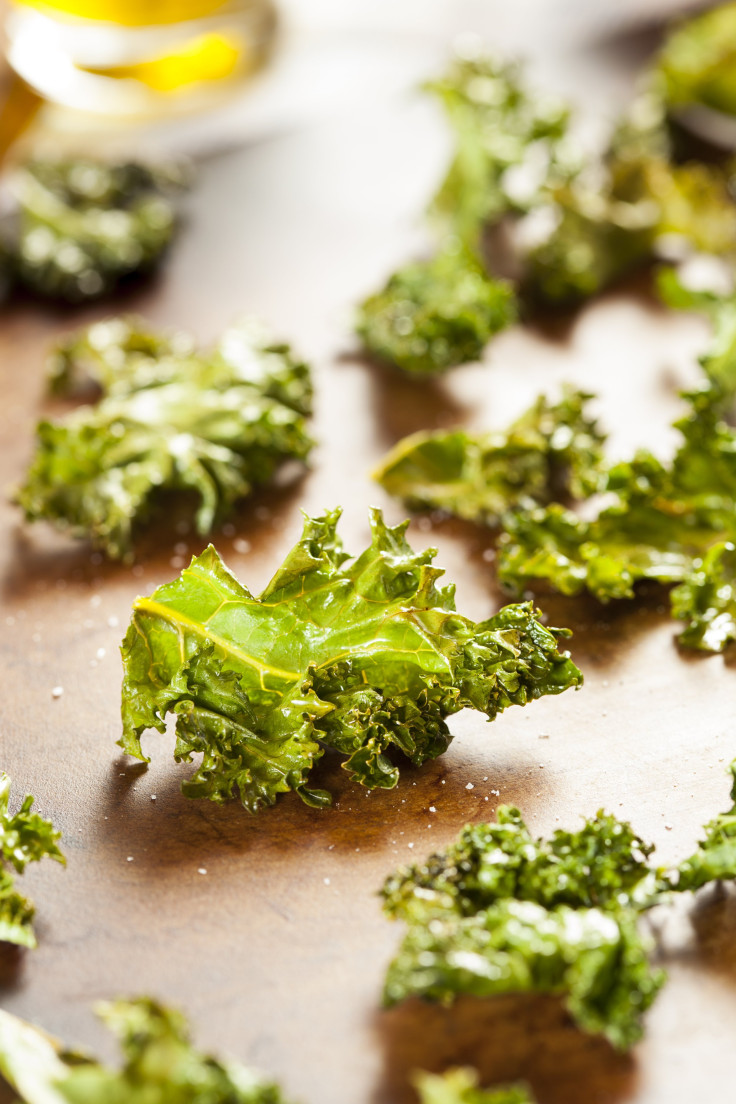The Dark Side Of Broccoli And Kale: Could Cruciferous Vegetables Be Bad For You?

Broccoli is probably the healthiest food out there, right? It’s rich in antioxidants and it’s known to have cancer-fighting features; it can also lower cholesterol when steamed. The same goes for other cruciferous vegetables, such as kale, cabbage, and Brussels sprouts — unless you’re eating far too much of them, health and nutrition experts say.
Kale in particular has become a remarkably popular health “super food,” with a lengthy list of benefits like antioxidants, cardiovascular support, as well as anti-inflammatory and cancer-fighting benefits. But too much kale can be a bad thing. It can lead to hypothyroidism, a condition in which the thyroid gland doesn’t make enough thyroid hormone. Hypothyroidism is also referred to as an “underactive thyroid.”
Jennifer Berman of The New York Times writes that she used to be a major health foods enthusiast, drinking fresh vegetable juices and eating plenty of greens daily. “Imagine my shock, then, at my last physical, when my doctor told me I had hypothyroidism, common in women over 40,” Berman wrote for The New York Times. “When I got home I looked up the condition on the Internet and found a list of foods to avoid. Kale, which I juiced every morning, tops the list, followed by broccoli, cauliflower, cabbage, Brussels sprouts and collard greens — the cruciferous vegetables I consumed in large quantities because they are thought to prevent cancer, which runs in my family.”
But these fresh vegetables and fruits had an effect on her dental health, too. Berman went to the dentist, who told her she’d “be better off with chocolate and cola” than fresh vegetable juices and filtered lemon water. “Apparently the natural sugars in fruit and vegetable juices can cause decay, and lemon, though high in vitamin C and bioflavonoids which may prevent cancer, had eroded the enamel that protected my teeth,” Berman wrote.
Before You Eat Kale, Cook It
Cruciferous vegetables, also known as brassicas, can include kale, broccoli, cabbage, cauliflower, bok choi, arugula, turnips, and watercress. If you want the health benefits of kale without the aspects that could lead to an enlarged thyroid, simply cooking it can mitigate this risk. The goitrogenic properties of kale (the aspects that contribute to an enlarged thyroid) tend to dissipate when kale or other veggies are cooked.
Making sure to mix up which vegetables you eat will also ensure that you are receiving all those vegetable nutrients without overdoing it. Some other vegetables that are non-goitrogenic are cucumbers, beets, celery, parsley, zucchini, and carrots.
And don’t let all this thyroid talk prevent you from eating your greens. Teresa Fung, an adjunct professor of nutrition at the Harvard School of Public Health and a professor at Simmons College in Boston, told WBUR that “normal, reasonable amounts of eating should not be a problem. A regular person [with no thyroid issues] who eats several servings of cruciferous vegetables a week should not have problems.”
However, Fung does note that it’s all about moderation. “It’s the dose that makes a poison,” she told WBUR. “If people have hypothyroidism or they’re taking thyroid medication, then they should check with their doctor. But even in this case, reasonable amounts shouldn’t be a problem. Now, if people have a tall glass of kale juice every single day, then it gets into the unknown territory.”



























